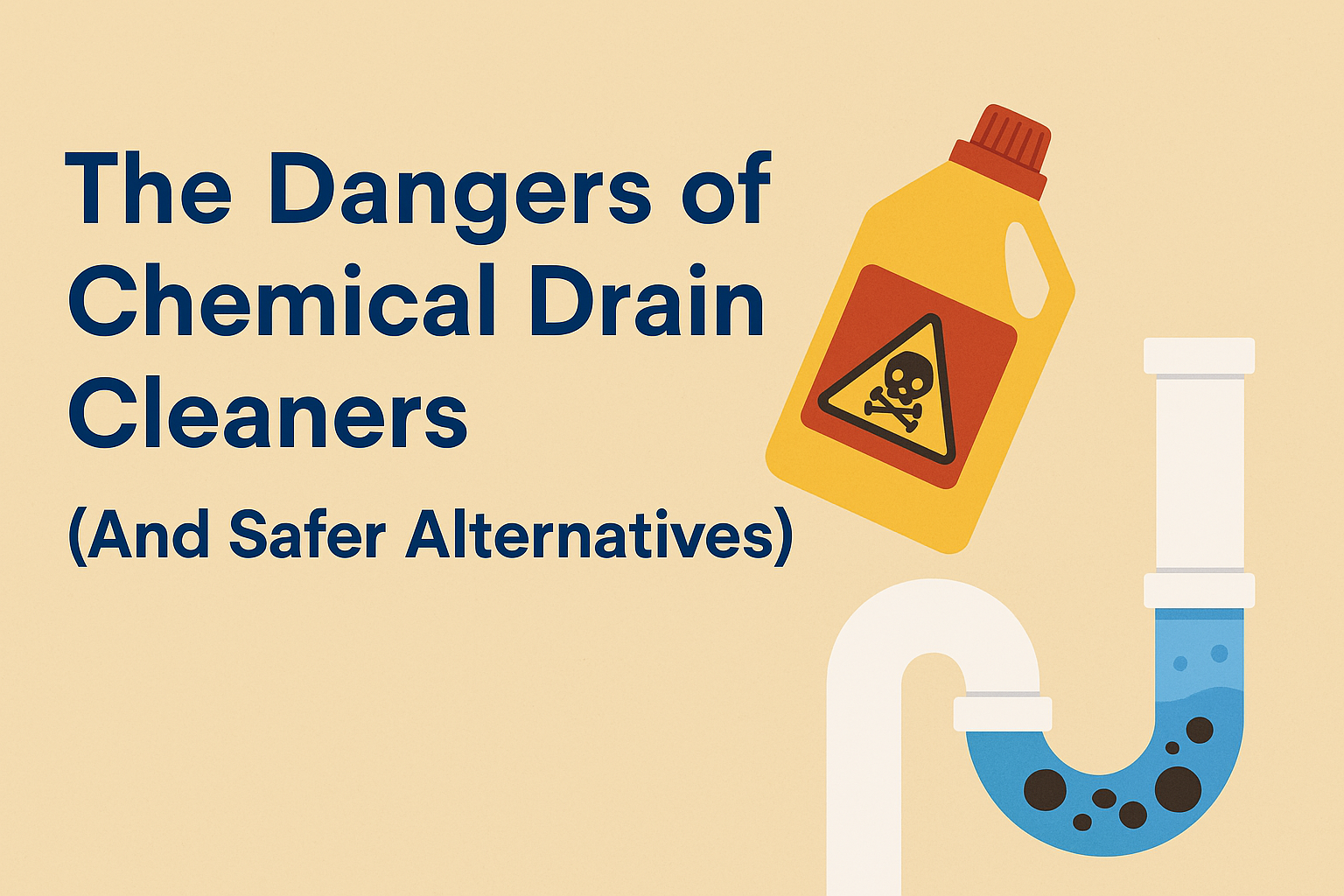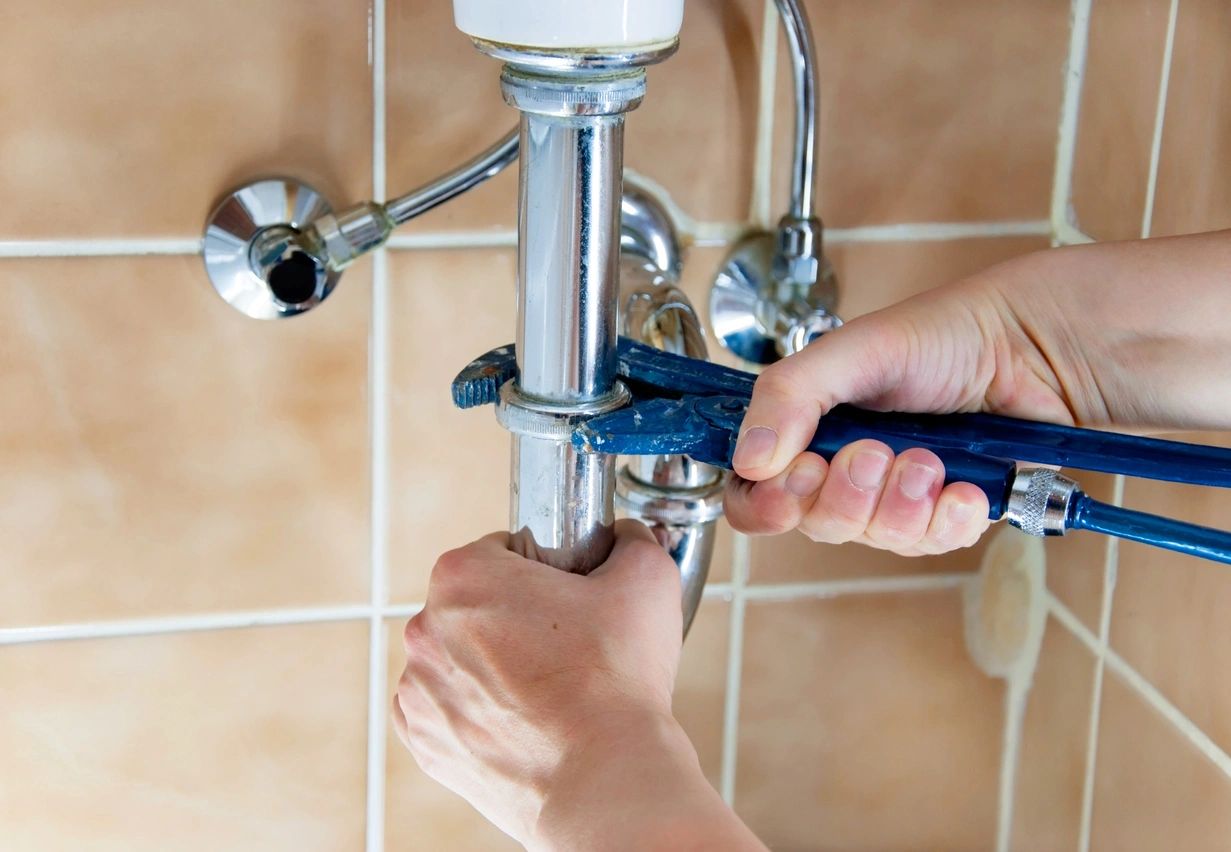Clogged drains are one of the most common plumbing problems homeowners face, and they can lead to more serious issues if left untreated. From slow drainage to unpleasant odors, clogged drains are not only inconvenient but can also cause costly damage to your plumbing system. In this blog post, we will dive into the most common causes of clogged drains and provide actionable tips to avoid frequent blockages, ensuring your plumbing system stays in top shape.
Common Causes of Clogged Drains
1. Hair Buildup
One of the most frequent culprits behind clogged drains is hair. Whether it’s from washing your hair in the shower or grooming over the sink, hair tends to accumulate in the pipes over time. When hair mixes with soap scum and other debris, it forms clumps that restrict water flow, leading to blockages.
2. Grease and Oil
Grease, fats, and oils are another leading cause of clogged kitchen drains. When hot grease cools down, it solidifies and sticks to the walls of your pipes, trapping food particles and other debris. Over time, this buildup becomes a stubborn clog that can be difficult to remove.
3. Soap Scum
While soap is essential for cleaning, it can also contribute to clogged drains. Many soaps contain fats and oils that combine with water minerals to form a hard residue known as soap scum. This scum can stick to the insides of your pipes, narrowing them and making it easier for other debris to get stuck.
4. Food Waste
Even with a garbage disposal, certain food items should never go down the drain. Coffee grounds, eggshells, pasta, and rice, for instance, expand in water and can easily cause a blockage. Additionally, fibrous foods like celery or potato peels can tangle in the disposal blades and lead to a clogged drain.
5. Foreign Objects
Drains can easily become clogged when non-flushable items, such as cotton swabs, dental floss, or even children’s toys, end up in the pipes. These foreign objects don’t break down and can get stuck in your plumbing system, causing a blockage that requires professional attention.
6. Tree Roots
Tree roots are a more serious cause of clogged drains, particularly in older homes with aging sewer lines. Roots naturally seek out water and can infiltrate your underground pipes, leading to severe blockages and even pipe damage. If you notice recurring drainage issues, tree roots might be the culprit.
7. Mineral Buildup
If you live in an area with hard water, mineral deposits can accumulate inside your pipes over time. This buildup of calcium and magnesium restricts water flow and can lead to stubborn clogs. Hard water can be particularly problematic if not treated, as the minerals don’t dissolve easily.
How to Avoid Clogged Drains
Now that we’ve covered the most common causes of clogged drains, let’s look at some simple yet effective preventative measures you can take to avoid frequent blockages.
1. Use Drain Covers
One of the easiest ways to prevent clogs is by using drain covers or strainers in your sinks, showers, and tubs. These handy devices catch hair, food particles, and other debris before they have a chance to enter your pipes. Make it a habit to clean the strainers regularly to ensure optimal drainage.
2. Dispose of Grease Properly
Never pour grease, fats, or oils down the drain. Instead, let them cool in a container, then dispose of them in the trash. You can also use paper towels to wipe greasy pots and pans before washing them. This simple habit will go a long way in preventing kitchen drain clogs.
3. Avoid Flushing Non-Flushable Items
Toilets are designed for human waste and toilet paper—nothing else. Make sure to keep items like cotton swabs, sanitary products, wipes, and dental floss out of the toilet. Even products labeled as “flushable” can cause blockages, so it’s best to throw them in the trash.
4. Run Hot Water After Use
Running hot water down your sink after each use can help wash away any grease, soap scum, or other debris before they have a chance to build up. This is especially important after washing greasy dishes or after using the bathroom sink for shaving or grooming.
5. Clean Your Drains Regularly
Routine drain cleaning can help prevent blockages. You can use a mixture of baking soda and vinegar to naturally clean your drains once a month. This combination creates a fizzy reaction that helps break down soap scum and other debris clinging to the walls of your pipes.
6. Be Mindful of What Goes Down the Garbage Disposal
Not all food waste is suitable for the garbage disposal. Avoid putting fibrous foods, starchy items, and coffee grounds down the disposal. Instead, throw these items in the compost or trash. Always run cold water while using the disposal to help break down any food particles.
7. Schedule Regular Plumbing Inspections
One of the best ways to prevent clogs is to have your plumbing system inspected regularly by a professional. A plumber can identify potential problems before they become severe and offer solutions like hydro-jetting to keep your pipes clear of debris.
Conclusion
Clogged drains can be a major inconvenience, but by understanding the common causes and taking proactive steps to prevent blockages, you can keep your plumbing system running smoothly. From using drain covers to scheduling regular plumbing inspections, these simple tips can help you avoid costly repairs and ensure your drains stay clear.
If you’re dealing with frequent clogs or suspect a more serious issue, it’s always a good idea to consult a professional plumber like Super Duper Pros. By addressing the problem early, you can avoid more significant damage to your plumbing system.
By following these preventive measures and being mindful of what goes down your drains, you can minimize the chances of blockages and maintain a healthy plumbing system for years to come.



